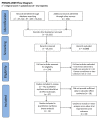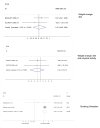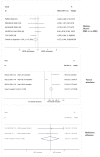The effectiveness of mobile-health technology-based health behaviour change or disease management interventions for health care consumers: a systematic review
- PMID: 23349621
- PMCID: PMC3548655
- DOI: 10.1371/journal.pmed.1001362
The effectiveness of mobile-health technology-based health behaviour change or disease management interventions for health care consumers: a systematic review
Abstract
Background: Mobile technologies could be a powerful media for providing individual level support to health care consumers. We conducted a systematic review to assess the effectiveness of mobile technology interventions delivered to health care consumers.
Methods and findings: We searched for all controlled trials of mobile technology-based health interventions delivered to health care consumers using MEDLINE, EMBASE, PsycINFO, Global Health, Web of Science, Cochrane Library, UK NHS HTA (Jan 1990-Sept 2010). Two authors extracted data on allocation concealment, allocation sequence, blinding, completeness of follow-up, and measures of effect. We calculated effect estimates and used random effects meta-analysis. We identified 75 trials. Fifty-nine trials investigated the use of mobile technologies to improve disease management and 26 trials investigated their use to change health behaviours. Nearly all trials were conducted in high-income countries. Four trials had a low risk of bias. Two trials of disease management had low risk of bias; in one, antiretroviral (ART) adherence, use of text messages reduced high viral load (>400 copies), with a relative risk (RR) of 0.85 (95% CI 0.72-0.99), but no statistically significant benefit on mortality (RR 0.79 [95% CI 0.47-1.32]). In a second, a PDA based intervention increased scores for perceived self care agency in lung transplant patients. Two trials of health behaviour management had low risk of bias. The pooled effect of text messaging smoking cessation support on biochemically verified smoking cessation was (RR 2.16 [95% CI 1.77-2.62]). Interventions for other conditions showed suggestive benefits in some cases, but the results were not consistent. No evidence of publication bias was demonstrated on visual or statistical examination of the funnel plots for either disease management or health behaviours. To address the limitation of the older search, we also reviewed more recent literature.
Conclusions: Text messaging interventions increased adherence to ART and smoking cessation and should be considered for inclusion in services. Although there is suggestive evidence of benefit in some other areas, high quality adequately powered trials of optimised interventions are required to evaluate effects on objective outcomes.
Conflict of interest statement
VP is a member of the Editorial Board of
Figures





Comment in
-
Text messaging interventions increase adherence to antiretroviral therapy and smoking cessation.Evid Based Med. 2014 Feb;19(1):35-6. doi: 10.1136/eb-2013-101359. Epub 2013 Jun 22. Evid Based Med. 2014. PMID: 23792940 No abstract available.
References
-
- World Health Organisation (2011) World Health Statistics, 2011. Geneva: WHO.
-
- UNAIDS (2003) AIDS Epidemic update.
Publication types
MeSH terms
Grants and funding
LinkOut - more resources
Full Text Sources
Other Literature Sources
Medical

